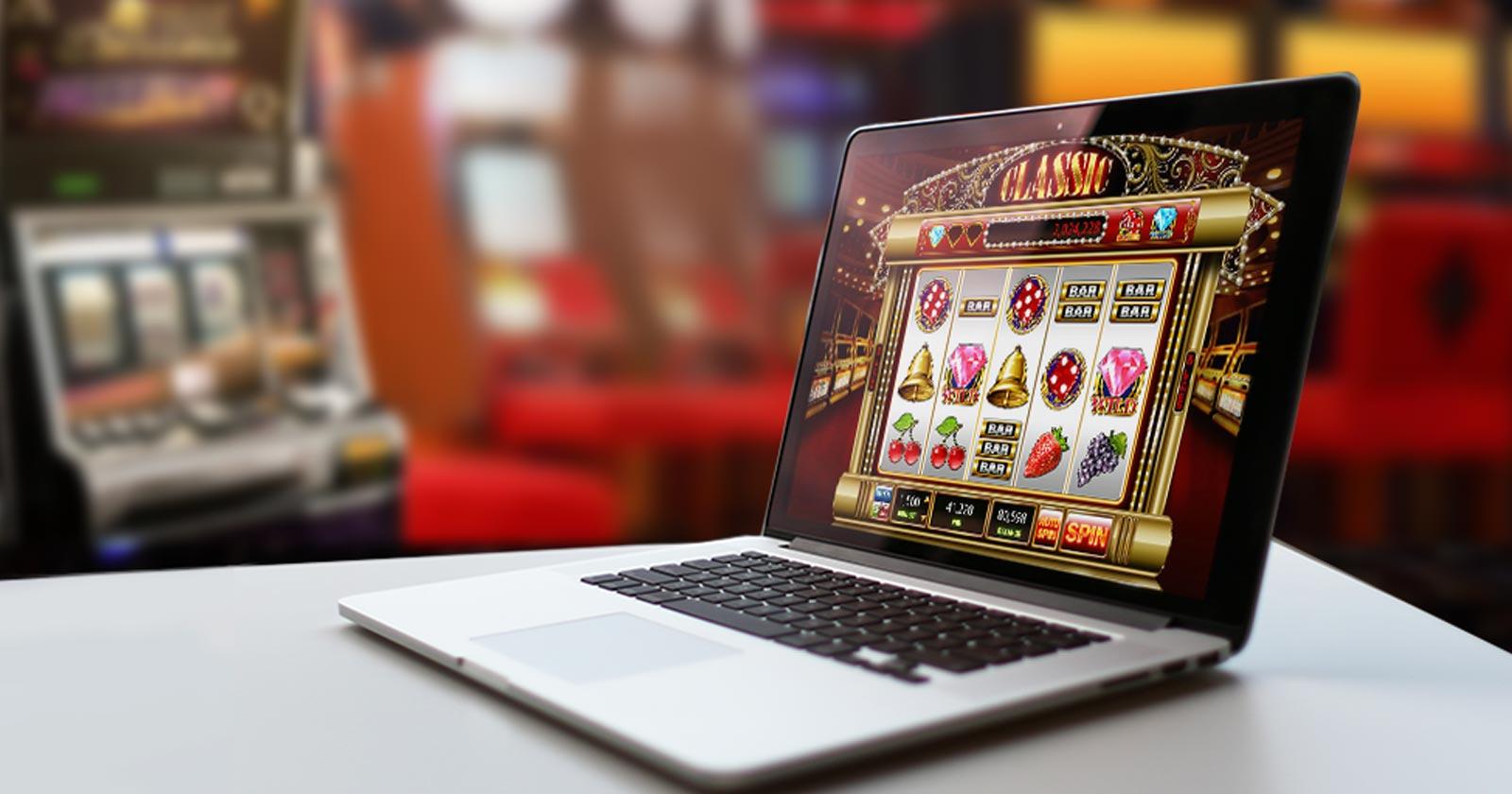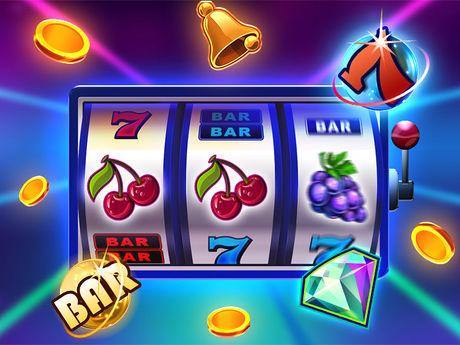Table of Contents
- The Rise of Digital Gaming Platforms and Their Impact on Traditional Casinos
- Emergence of Mobile Gaming and Its Influence on Player Engagement
- The Role of Technology in Shaping Online Casino Experiences
- Regulatory Changes and Their Effect on the Market Landscape
- Future Trends in Online Gambling and What Players Should Anticipate
- Q&A
- Wrapping Up


The Rise of Digital Gaming Platforms and Their Impact on Traditional Casinos
The emergence of digital gaming platforms has revolutionized the gambling landscape, leading to significant transformations in how players interact with games. With their convenience, accessibility, and diverse offerings, these platforms have attracted a broad demographic, from seasoned gamblers to casual players. Unlike traditional casinos that often require travel and adherence to strict operational hours, online platforms provide 24/7 access, allowing individuals to engage in gaming at their own pace and from the comfort of their homes. As a result, the once-stalwart patronage of brick-and-mortar establishments has seen a decline, urging operators to rethink their strategies in response to this digital disruption.
Furthermore, online casinos utilize advanced technology to enhance the user experience, offering features such as live dealer games, virtual reality environments, and mobile compatibility. These innovations not only replicate the excitement of a physical casino but also introduce interactive elements that keep players engaged. The benefits of personalization through tailored experiences and targeted promotions have made winning over potential customers easier than ever. Traditional casinos, facing increasing competition, are also beginning to integrate technology into their models—many are adopting hybrid formats by incorporating digital interfaces and loyalty programs that blend in-person and online gaming experiences.
As the online gaming sector continues to expand, it has introduced financial implications and regulatory challenges for traditional casinos. Operators must navigate a more complex landscape, combating not only the increasing threat of online competitors but also adhering to evolving regulations targeting digital gambling. Below is a comparison of key elements that illustrate the shifting dynamics between traditional casinos and online platforms:
| Feature | Traditional Casinos | Online Casinos |
|---|---|---|
| Location | Physical venues | Accessible anywhere |
| Game Variety | Limited by space | Extensive options available |
| Operational Hours | Varies by location | Open 24/7 |
| Social Interaction | In-person interactions | Online chats and live dealers |
| Bonuses and Promotions | Less frequent | Regular and targeted |
Emergence of Mobile Gaming and Its Influence on Player Engagement
The rise of mobile gaming has revolutionized the landscape of online entertainment, significantly altering how players interact with casino games. With advancements in technology, smartphones have become powerful tools for immersive gaming experiences. Players now can enjoy their favorite casino games anytime and anywhere, leading to a surge in popularity and player engagement. This newfound flexibility has redefined what it means to play games, as access is no longer limited to physical locations. Instead, players can simply pull out their phones and dive into a world of slots, poker, or live dealer experiences.
The social aspect of mobile gaming has also contributed greatly to player engagement. Many mobile casino games incorporate features that allow players to connect, compete, and collaborate with friends and other users around the globe. This creates a sense of community that enhances the overall experience. Some key features that foster engagement include:
- Multiplayer Modes: Players can join forces with friends or compete against each other.
- Live Chat Functions: Engaging in real-time conversations adds a layer of social interaction.
- In-Game Events: Special tournaments and challenges encourage player participation and competition.
Furthermore, mobile gaming platforms often leverage sophisticated analytics to tailor experiences to player preferences. By analyzing players’ behaviors and choices, these platforms can deliver personalized content, such as game suggestions, bonuses, and rewards, which further fuels engagement. The integration of gamification elements has also become a vital strategy in retaining players, combining competition, achievement, and fun. As a result, operators can create captivating ecosystems that not only draw in new players but also keep them coming back for more.


The Role of Technology in Shaping Online Casino Experiences
The rapid advancement of technology has dramatically transformed the landscape of online gaming, particularly within virtual casinos. One of the most significant contributions has been the evolution of software platforms that power these gambling sites. Providers like Microgaming and NetEnt have revolutionized the user experience by delivering high-quality graphics and fluid gameplay that capture players’ attention. This has resulted in a captivating environment where players can interact with rich themes and vibrant animations, leading to longer engagement times and increased player satisfaction.
Additionally, the integration of mobile technology has reshaped how players access casino games. With smartphones and tablets becoming ubiquitous, the ability to play your favorite games on the go has added a new layer of convenience and accessibility. The rise of apps designed for mobile devices ensures that players can enjoy a seamless gaming experience, complete with intuitive navigation and optimized visuals. This flexibility has not only attracted new demographics but also encourages existing players to explore various gaming options, all from the palm of their hands.
The implementation of live dealer technology has also enhanced the online casino experience, bridging the gap between virtual and physical gaming environments. Advanced streaming services allow players to interact with real dealers in real time, creating an immersive atmosphere that mirrors traditional casino settings. This dynamic interaction adds a level of authenticity that many players crave, while additional features like chat functions foster community engagement. As technological developments continue to unfold, the online casino experience will undeniably evolve, ensuring that entertainment and innovation remain at the forefront of the gaming industry.


Regulatory Changes and Their Effect on the Market Landscape
In recent years, the online casino industry has experienced significant shifts driven largely by evolving regulatory frameworks across different regions. These changes have created a ripple effect, altering the dynamics of competition and market strategies. As more jurisdictions embrace legalization, operators find themselves navigating a maze of compliance requirements that can vary dramatically from one locale to another. This regulatory environment not only ensures the safety and security of players but also shapes how businesses position themselves within the market.
One of the most profound impacts of these regulatory changes is the emergence of new market players, each keen to capture the attention of a larger audience while adhering to compliance norms. The proliferation of licensing jurisdictions, such as Malta or the UK, has incentivized casinos to innovate their offerings. Operators are compelled to enhance user experience through tailored promotions, diversified gaming options, and superior customer service. This competitive pressure drives players to expect an elevated level of engagement, thereby pushing casinos to continuously refine their strategies to attract and retain clientele.
The ongoing changes have also influenced the integration of technology within the industry. Many regulated online casinos are now leveraging advanced data analytics and artificial intelligence to fine-tune their marketing strategies and enhance user engagement. With robust regulations in place, casinos can responsibly collect and analyze player data to personalize experiences. This data-driven approach not only helps in identifying potential issues such as problem gambling but also allows businesses to optimize their offerings effectively. The result is a market that is not only more competitive but also puts greater emphasis on player protection and satisfaction.


Future Trends in Online Gambling and What Players Should Anticipate
The online gambling landscape is poised for significant transformation as new technologies emerge and player preferences evolve. One of the most striking trends is the rise of immersive technologies such as virtual reality (VR) and augmented reality (AR). These innovations promise to take online gaming beyond traditional interfaces, providing experiences that mimic the thrill and ambiance of physical casinos. Players can anticipate an enhanced social interaction with features like VR poker rooms or live dealer games that feel more lifelike, effectively breaking the barriers of distance.
In addition to technological advancements, the integration of blockchain technology is set to revolutionize online gambling platforms. By leveraging the transparency and security of blockchain, casinos can offer provably fair games, ensuring that players can verify the fairness of game outcomes. This shift not only enhances trust but also enables faster transactions, reducing the waiting time for deposits and withdrawals. Moreover, cryptocurrencies are becoming a common payment option, allowing for anonymity and simplicity in transactions.
Lastly, as regulatory landscapes shift globally, players should expect more personalized gaming experiences driven by advanced data analytics. Casinos will analyze player behaviors to tailor recommendations, promotional offers, and even game designs that align with individual playing habits. This level of customization not only makes the gaming experience more engaging but also promotes responsible gambling by providing tools tailored to individual needs. Below is a summary table highlighting key future trends:
| Trend | Description |
|---|---|
| Immersive Technologies | VR and AR for a more engaging gaming experience. |
| Blockchain Integration | Enhanced transparency and faster transactions through cryptocurrencies. |
| Data Analytics | Personalized experiences and responsible gaming tools based on player behavior. |










